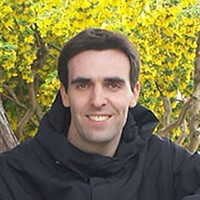Should a 98-year-old Minnesota man be extradited for Nazi war crimes?
Loading...
War crimes have no statute of limitations, according to Poland.
After years of investigation, prosecutors from Poland’s Institute of National Remembrance (IPN) have asked a local court to issue an arrest warrant for an American suspected of ordering the 1944 killing of 44 Polish villagers. If granted, Poland will seek extradition to try the man, identified by the AP as 98-year-old Michael Karkoc, for his crimes.
If convicted, the elderly man could spend the rest of his life in prison.
The Karkoc family vigorously denied the allegations, which one son called “evil, fabricated, intolerable, and malicious.”
But Polish prosecutor Robert Janicki said historical evidence confirms “100 percent” that Mr. Karkoc was a commander in the SS-led Ukrainian Self Defense Legion (USDL), and Lauren Easton of AP’s media relations said “The Associated Press stands by its stories, which were well-documented and thoroughly reported.”
According to a 2013 investigative report by the AP, in 1943 Karkoc helped found the USDL, which fought to defend Ukraine against Russia during World War II, allying it with Germany. Karkoc allegedly served as a company commander, taking orders directly from the SS, before the unit was folded into the Galician Division of the SS in 1945.
During his time as commander, he allegedly ordered the USDL to “liquidate all the residents” of the Polish village Chlaniow to avenge the killing of USDL commander Siegfried Assmuss by local fighters.
Multiple subordinates described the razing to Soviet investigators after the fact. “It was all like a trance: setting the fires, the shooting, the destroying,” said one of Karkoc’s men, Vasyl Malazhenski in a 1967 statement.
After the war, Karkoc emigrated to the US with his two young sons, telling immigration officials he had never engaged in military activities, claiming he “worked for father until 1944. Worked in labor camp from 1944 until 1945.”
Members of the Galician SS were prohibited from obtaining visas at the time, but seven different agencies found no evidence of his background, lacking information held by Soviet intelligence.
“Verification of identity and complete establishment of applicant’s reliability is not possible due to the inaccessibility of records and geographic area of applicant’s former residence,” read a note in his intelligence file.
Listing “carpenter” as his profession, he found a job working for a nationwide construction company with an office in Minneapolis. He remarried, had four more children, and has lived in Minnesota ever since.
In the wake of the 2013 AP report, Germany launched an investigation into his crimes but decided not to pursue extradition after receiving “comprehensive medical documentation” from his doctors, the Washington Post reports. The elderly Karkoc suffers from Alzheimer's disease, according to his family, and Germany concluded he would not be fit to stand trial.
Poland, it seems, is not inclined to be so lenient.
"This case shows that there is still a possibility, a chance to bring those responsible before a court and I think we should never give up the chance of exercising justice," said Polish prosecutor Andrzej Pozorski.
Karkoc might never have been found if he hadn’t chosen to publish a Ukrainian-language memoir in 1995. The book described his role in founding the USDL and its relationship with the SS, even referencing the death that triggered the attack on Chlaniow.
"We lost an irreplaceable commander, Assmuss," Karkoc wrote.
There was no account of the subsequent retaliation.
Retired British pharmacologist Stephen Ankier uncovered Karkoc’s name while researching Nazi war crimes in his spare time, and tipped off the AP after finding Karkoc’s Minnesota address. The AP completed the rest of the investigation by assembling a number of historical documents via Freedom of Information Act Requests.
"Here was a chance to publicly confront a man who commanded a company alleged to be involved in the cruel murder of innocent people," said Mr. Ankier.
No evidence suggests Karkoc was directly involved in the killings, but statements from his subordinates and SS records confirm that his unit massacred civilians. In some countries “command responsibility” suffices to convict Nazis of war crimes.
Karkoc has refused AP requests for an interview but was reportedly able to answer the door without the aid of a cane.
“I don’t think I can explain,” he told the AP.








